Honor Code Purpose
The Academic and Professional Honor System at the University of South Carolina School of Medicine Columbia (USC SOMC) seeks to recognize the high degree of academic, personal, and professional integrity and uphold those values for the benefit of students, faculty, staff, and patients and clients. The Honor System obligates USC SOMC students, as future professionals and representatives of the University of South Carolina School of Medicine Columbia, to conduct themselves with honor and integrity in all aspects of their lives. The Honor System fosters an environment of trust that benefits the student-faculty relationship and USC SOMC as a whole. Each student at the USC SOMC agrees to abide by the codes set forth by the Honor System.
Honor System
Academic integrity and strict adherence to the South Carolina School of Medicine honor system are core elements of our Medical School programs.
Report a violation
Honor Code [pdf]
Honor Code Document
This Academic and Professional Honor System document [pdf] serves to inform the University of South Carolina School of Medicine Columbia student body about:
- Their responsibilities outlined in the written Honor Code, Code of Conduct, and Professional Code of Conduct;
- The expectancy that they participate in investigations into alleged violations of the written codes;
- The process of honor and conduct reviews regarding reported violations of the codes; and
- The process for conferring with School of Medicine Columbia administration regarding such violations.
Reporting Mistreatment
If you would like to report student mistreatment, please complete the SAFE (Supporting A Fair Environment) Form.
Please note that SAFE reports will be sent to Eric R. Williams, M.D., Assistant Dean for Student Affairs (eric.williams@uscmed.sc.edu, office: 803-216-3616, cell: 803-727-9788).
Dr. Williams is a mandated reporter and is required to inform the Office for the Prevention of Harassment and Discrimination if he becomes aware that a student (undergraduate, graduate, or professional) may have experienced conduct prohibited by the USC Sexual Violence and Sexual Harassment Policy or the USC Nondiscrimination Policy Statement, even if it is reported anonymously.
The educational program in the School of Medicine has been developed to support and encourage the collegiality and professionalism essential to an effective learning environment. Students who believe that they have been punitively assessed or mistreated because of religion, race, ethnicity, gender, sexual orientation, age or other factors have access to the School of Medicine ombudspersons.
The ombudspersons are empowered to receive and investigate reports of mistreatment, to mediate between the parties involved, and, in the event mediation is not successful, to make recommendations directly to the dean of the School of Medicine regarding appropriate resolution of any complaints.
The use of the ombudspersons’ services to resolve a complaint represents a form of alternate dispute resolution. For this reason, the services of the ombudspersons will no longer be available to a student once that student engages an attorney to initiate legal action against the School of Medicine, the University of South Carolina, or the employees of those institutions.
M-I and M-II Students
Jay Potts, Ph.D.
Department of Cell Biology and Anatomy
School of Medicine
Email: Jay.Potts@uscmed.sc.edu
Phone: 803-216-3820
M-III and M-IV Students
Jeanette Epstein, M.D.
Department of Pediatrics
14 Medical Park, Suite 400
Email: Jeanette.Epstein@prismahealth.org
Phone: 803-479-1999
Florence Regional Campus Students
Brittany Rainwater, Psy.D.
McLeod Family Medicine Center
Email: Brittany.Rainwater@mcleodhealth.org
Phone: 843-777-2826
As your PALs (Peer Advocate Liaisons), we hope to provide you with access to the resources you need if an incident of mistreatment occurs. We hope to foster an environment of confidentiality in order to protect students disclosing any issues with mistreatment. Reporting issues of mistreatment will not only help to protect you, but also your peers and future medical students.
M4 PALs
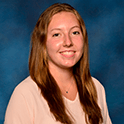 |
Mikaela Ruvolo, ColumbiaMikaela.Ruvolo@uscmed.sc.edu |
 |
Brent Sodeman, ColumbiaBrent.Sodeman@uscmed.sc.edu |
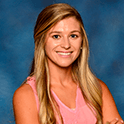 |
Rylee White, FlorenceRylee.White@uscmed.sc.edu |
M3 PALs
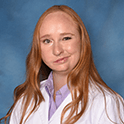 |
Amber Dorn, ColumbiaAmber.Dorn@uscmed.sc.edu |
 |
Brynn Franz, ColumbiaBrynn.Franz@uscmed.sc.edu |
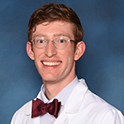 |
Hansel Haase, FlorenceHansel.Haase@uscmed.sc.edu |
M2 PALs
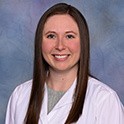 |
Elizabeth Barker, ColumbiaElizabeth.Barker@uscmed.sc.edu |
 |
Daniel Hernandez, ColumbiaDaniel.Hernandez@uscmed.sc.edu |
 |
Graham Tulowitzky, ColumbiaGraham.Tulowitzky@uscmed.sc.edu |
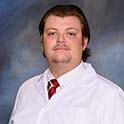 |
Benjamin Williams, FlorenceBenjamin.Williams@uscmed.sc.edu |
Title IX Information
The University of South Carolina is committed to providing an environment free from discrimination, harassment, sexual misconduct, and related retaliation. This commitment helps realize the university’s primary mission and aligns with institutional values and to complying with all requirements set forth by civil rights laws, including Title IX, and related federal and state authority.
Read more about the university's policies and resources regarding sexual violence and harassment.
|
Title |
Topic | Keywords (hidden column) |
|---|---|---|
| Clerkship Director Handbook [pdf] | Clerkships | |
| Curriculum Committee Handbook 2020-2021 [pdf] | ||
| Honor Code [pdf] | Academics | |
| Mistreatment Report [pdf] | Student Life | |
| Policies for Curriculum Administration [pdf] | Curriculum | |
| Student Handbook to Clinical Rotations [pdf] | Rotations |
The new home for Student Health Services on the main USC campus opened in July 2017. The building located between the Thomson Building and the Thomas Cooper Library behind the Russell House University Union.
Student Health Services offers both medical services and mental health services.
Learn more on the Student Health Services website.
The Student Success and Wellness Center develops and implements holistic student programs that allow students to thrive academically and personally throughout their medical school experience. These support systems are designed to empower students to take care of themselves while completing their academic program and transfer those self-care skills into their future careers.
Learn more about the Office of Student Success and Wellness.
Any USC School of Medicine and Dorn VA Hospital faculty, staff, student or official guest may use the Humphries Fitness Center. To register, please download and fill out the below PDF, and email it to vadooraccess@uscmed.sc.edu.
Download the Rules and Regulations for the Humphries Fitness Center [pdf].
Emergency Call Boxes
Several call boxes are strategically placed around campus. The boxes can be easily identified by their bright blue lights and provide a direct line of communication with the USC Police. Call boxes should be used to report crimes in progress, fires, medical emergencies, or threats to personal safety.
To operate, simply push the red button. You will immediately be connected with the USC Police dispatcher. Even if you are unable to communicate, the dispatcher will know your exact location. If you are being chased and cannot stop, press the call boxes as you pass and police officers will respond to the area.
Community Crime Map
To help keep the University community informed, the Division of Law Enforcement and Safety uses GIS-based technology that tracks the location of all victim-related crimes on campus.
USC Law Enforcement partners with Community Crime Map, an online crime-mapping tool, to show crime activity in your area so you can make informed decisions about staying safe.
When an officer creates a report, the address and type of crime are uploaded to CommunityCrimeMap.com creating an almost real-time perspective of the incidents that affect the University community.
Daily Crime Log
The daily crime log is a record of all criminal incidents reported to the University
of South Carolina Law Enforcement. The report is arranged in chronological order and
dates back approximately two months. For older logs, please contact our Records Division
at 803.777.5282.
View Daily Log
Crime Bulletins and Emergency Notifications
No one system is capable of reaching everyone, everywhere every time. That is why the University maintains more than 20 different ways to communicate a message in an emergency, which together create the Carolina Alert Notification System. Methods of communication are chosen based on the individual situation or incident.
See the latest Crime Bulletin.
See the latest Carolina Alert.
Emergency Notifications
If a situation poses an immediate risk and requires a change in action (seek shelter, evacuate, etc.) disruptive media may be used in the form of sirens, text messages, TV message crawler or others. Emergency Notifications may be used for incidents that occur on or immediately adjacent to the university campus. Emergency Notifications are generally not used when a criminal incident has occurred off-campus or if perpetrator(s) were seen fleeing away from campus, or if there is a time lapse in reporting the incident to police.
Emergencies where issuing a notification would compromise efforts to assist a victim,
contain the emergency, respond to the emergency, or mitigate the emergency may also
prohibit an Emergency Notification.
Students, faculty and staff are encouraged to sign-up to receive emergency notifications using text messages sent to your mobile phone.
Emergency Plan
Download the School of Medicine Emergency Plan [pdf]
The University of South Carolina School of Medicine Emergency Management Plan outlines the University’s procedures for managing major emergencies that may threaten the health and safety of the campus community or disrupt its programs and activities. The plan identifies departments and individuals that are directly responsible for emergency response and critical support services.
At the USC School of Medicine, planning ahead for emergencies is part of normal business planning and campus life, and all members of the campus community share a responsibility for preparedness. An emergency can strike anytime or anywhere and a disaster will affect everyone. Therefore,
- Every administrative and academic unit is asked to review the USC School of Medicine/USC Emergency Management Plan to protect personnel and programs and to support campus response and recovery actions. The School of Medicine’s Director of Facilities Management will distribute the Department Emergency Planning Guidelines, along with the University of South Carolina Emergency Management Plan, to the various departments on all School of Medicine campuses.
- The School of Medicine maintains a comprehensive emergency preparedness and safety training program to mitigate potential hazards and to familiarize faculty, staff and students with emergency procedures.
Scope
The University of South Carolina School of Medicine Emergency Management Plan guides preparedness, response, and recovery actions. It applies to a broad range of emergency incidents and may be activated during:
- Earthquakes
- Hazardous Materials Releases
- Floods
- Fires or Explosives
- Extended Power Outages
- Mass Casualty Events
- Hurricanes
- Active Shooter
- Hostage
- Tornadoes
Like all communities, USC experiences interpersonal violence including sexual assault,
harassment, stalking and intimate partner violence. The university strives to prevent
interpersonal violence and support any who have experienced or been impacted by it.
We encourage you to seek help from the resources available to you. Together we can
stop interpersonal violence.
Contact Us
Call the Office of Sexual Assault and Violence Intervention & Prevention at 803-777-8248 or visit the Thomson Building to speak with an advocate. After hours, call USC Police at 803-777-4215 and ask for the SAVIP advocate. You don't need to give your name.
Our multi-disciplinary team of professional mental health providers includes psychiatrists,
nurse practitioners, physician assistants, psychologists, counselors, social workers
and supervised trainees in psychology, counseling and social work.
USC School of Medicine School Columbia on Campus Therapist
Laura Shaver-Hast, LISW-CP
Laura.shaver-hast@uscmed.sc.edu (email her for office hours)
VA Campus, Building 3, room 228
6311 Garners Ferry Road, Columbia, SC 29209
Counseling Services
Thomson Building
1409 Devine St. Columbia, SC 29201
Appointments: 803-777-5223
Fall & Spring Semester
Monday- Thursday 8 a.m. - 6:30 p.m.
Friday 8 a.m. - 5 p.m
Sunday 2-8 p.m. Sunday (Counseling appointments on Sunday are located in the Center
of Health and Well-Being)
Summer & Semester Breaks
Monday- Friday 8:30 a.m. - 4:30 p.m. with final appointment of the day scheduled at
4 p.m.
Psychiatric Services
Thomson Building
1409 Devine St. Columbia, SC 29208
Appointments: 803-777-1833
Fall & Spring Semester Hours:
Monday - Friday: 8 a.m. to 5 p.m.
Maymester & Summer Hours:
Monday - Friday, 8:30 to 4:30 p.m. only
Learn how to make an appointment. Learn about crisis services.
Completing a medical degree or graduate degree can be very stressful. If you are considering harming yourself or others, please call the 24-hour suicide hotline 800-273-8255.
Additional resources regarding suicide prevention are available through Student Health Services.
Medical Care
McLeod Urgent Care, 3015 West Palmetto Street, will provide student health care during their hours of operation.
Urgent Care Hours:
Monday – Friday: 8 a.m. – 8 p.m.
Saturday – Sunday: 9 a.m. – 4 p.m.
Students needing health care at other times should report to the McLeod Emergency
Department, 555 East Cheves Street.
Mental Health Services
Counseling services are available at The Counseling Center at Francis Marion University,
301 North, East Palmetto Street.
Pharmacy
Pharmacy services are available at McLeod Choice Pharmacy located on the west side of the Concourse adjacent to the McLeod Center for Cancer Treatment, front of hospital Main Tower.
Pharmacy Hours:
Monday – Friday: 7 a.m. - 8 p.m.
Saturday: 9 a.m. - 1 p.m.
Fitness Center
The McLeod Health & Fitness, 2437 Willwood Drive, is available to students rotating in Florence. You must present your student ID upon arrival.
The School of Medicine’s Lactation Room is located in the Library in Room 101H. When you come in the front door of the library, go straight past the circulation desk, and room 101H will be on your right (before the Reserve collection). There is a sign beside the door indicating it is the Lactation room.
The room is available to all School of Medicine faculty, staff, and students and their partners. Keys to the room may be checked out at the Library’s Circulation Desk for a period of 12 weeks. At the end of the 12-week period, the key must be returned or renewed.
Users are asked to scan a QR code and fill out a brief form each time the room is used. The code and instructions are posted on the wall.
Nursing Mother’s Lounges are a component of USC’s Parent and Kinship Care Network and USC’s Lactation Support policy. For further information, contact the Library at 803-216-3200 or Healthy Carolina at 803-777-1650.
Cocky's Cupboard is a food pantry created by the School of Medicine Columbia to both address food insecurity within the SOMC, while also providing supplies to help support the needs of the school's faculty, staff and students.